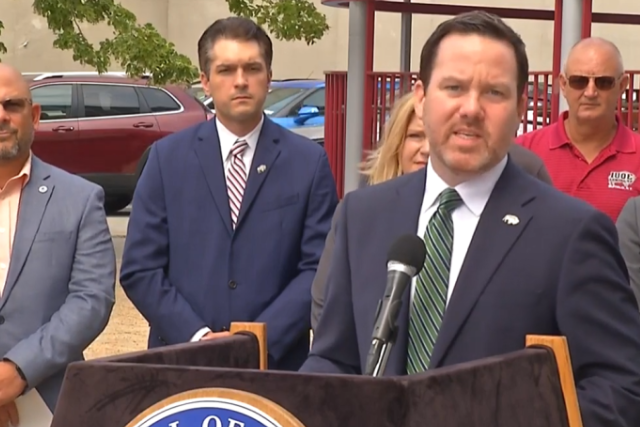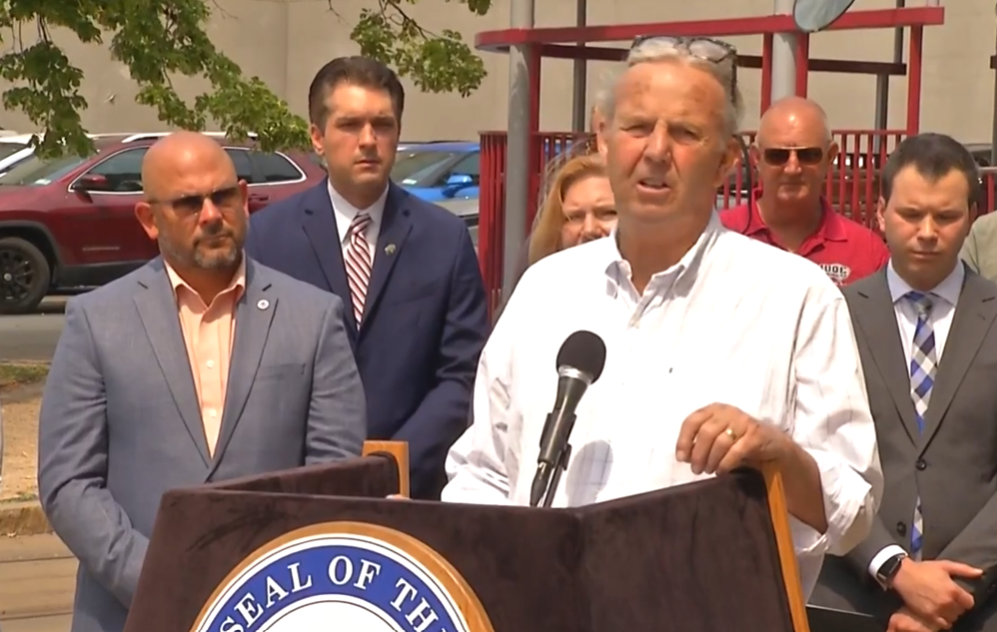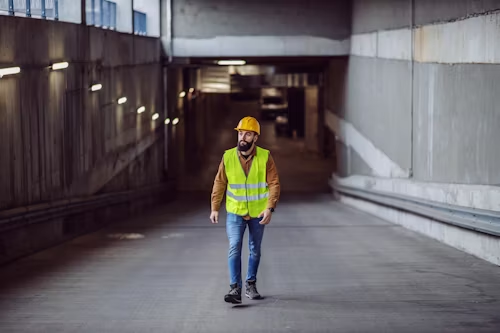
BUFFALO, N.Y. — More than $110 million in approved capital improvement projects remain stuck in limbo eight months after Buffalo’s Common Council gave the green light, as a dispute over bonding authority between Acting Mayor Chris Scanlon and City Comptroller Barbara Miller-Williams continues to block progress.
The stalemate has stalled critical infrastructure repairs, school facility upgrades, and cultural institution investments—delays that Scanlon says are eroding public trust and threatening local jobs.

“These are shovel-ready projects that need to be invested in,” Scanlon said at a press conference Wednesday. “However, not a single shovel is in the ground on one of these projects.
“This is not about availability of funding. This is not about project readiness. This is about inaction. But more than that, they are promises—promises to improve lives, generate jobs and transform neighborhoods.”
The frozen list includes $2.2 million for Buffalo cultural organizations and 21 capital projects for Buffalo Public Schools, ranging from HVAC and ventilation improvements to lead abatement and pool repairs.
Union Concrete and Construction Corporation President Gary Hill says road repair delays could be especially damaging. “There are roads sitting on hold that, if they don’t get awarded soon, are going to be in terrible condition for another winter,” Hill warned.
According to Hill, the stall on about $130 million in road projects is costing the area more than 1,000 construction jobs this summer. “This has to be solved so that we can move on, put the people to work and fix the roads,” he said. “I am thoroughly disgusted that this is being held up.”
Scanlon blames Miller-Williams for refusing to issue the Bond Anticipation Notes (BANs) necessary to finance the projects. But Miller-Williams says the administration and Buffalo Public Schools have failed to submit a Capital Improvement Projects (CIP) Priority List that fits within the $28 million debt cap set in her Fiscal Year 2024–2025 Comptroller’s Estimate and Report, filed August 1, 2024.
“Fiscal responsibility is not optional—it’s a requirement under the City Charter and a necessity for Buffalo’s long-term financial health,” Miller-Williams stated. “This debt cap ensures that we remain on solid financial ground while meeting the City and Buffalo Public Schools’ most urgent capital needs.”

The comptroller said her office has repeatedly asked for a revised plan—through in-person meetings and written requests—but has yet to receive one.
Given the impasse, Miller-Williams announced she will issue a $7 million BAN to fund only three federally supported projects: Busti Avenue, Cars Sharing Main Street, and Phase One of Jefferson Avenue.
“This decision was not made lightly,” Miller-Williams said. “But my obligation is to the taxpayers and citizens to safeguard the city’s long-term fiscal health. I remain open to working with the Administration and BPS if they choose to bring forward a Capital Budget request that does not exceed $28 million debt cap and complies with the standards we are legally and fiscally bound to uphold.”
The dispute is playing out during Buffalo’s peak construction season, when warm-weather months are typically used to accelerate roadwork and school facility projects. Contractors say each month of delay increases costs, especially with material prices still elevated from recent supply chain pressures.
The standoff also reflects a deeper political tension over fiscal management in Buffalo—a city that has faced structural budget challenges for years. While Scanlon frames the matter as urgent investment in the city’s future, Miller-Williams is positioning herself as a guardian of long-term stability.
For now, both sides remain publicly entrenched, and unless a compromise is reached soon, residents may see another winter with deteriorating roads, unrenovated schools, and stalled community upgrades.
Originally reported by Robin MacLennan in Newyork Construction Report.